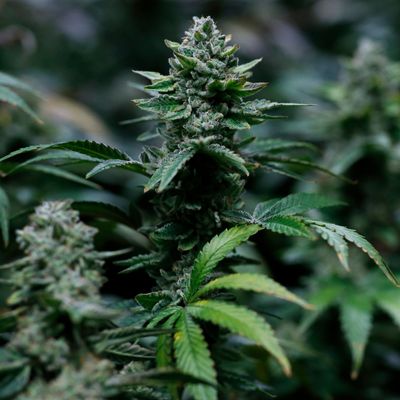
New York lawmakers and the embattled governor, Andrew Cuomo, have finalized a deal to fast-track the legalization of recreational marijuana, after years of lagging behind other progressive states on the issue. On March 27, lawmakers agreed to the deal, which will be signed into law in the coming week.
According to Senate Finance Committee chair Liz Krueger, the agreement would legalize recreational marijuana for adults 21 and older; allow for personal possession of up to three ounces; establish Amsterdam-style cafes in which marijuana could be smoked; and would include a 13 percent tax on sales — 9 percent of which would go to the state, and 4 percent to local governments. Distributors would also pay an excise tax, which could be as high as three cents per milligram of THC, the active ingredient in cannabis; that tax would be on a sliding scale, based on the type of product and how strong it is. As part of the deal, cities, towns, and villages may also choose not to approve retail and delivery weed within their jurisdiction.
The bill is scheduled to be taken up next week in the State Assembly and the Senate, shortly before the state budget is due next week. According to the Wall Street Journal, the Office of Cannabis Management established in the proposal would report to a five-member board, with three members appointed by the governor, and the State Assembly and Senate appointing one each. According to one estimate from the governor’s office, legal weed could bring in around $350 million in taxes annually — which would serve as a major boost to the state after the pandemic put a dent in sales-tax revenue collected by New York State.
The marijuana money unfortunately will not come in time to help close the $2.5 billion budget shortfall New York is facing in the next fiscal year. Sales and taxes on the goods would begin as early as one year after the bill’s enactment, at which point recreational use and limited personal growing could reportedly begin. Tax revenue from weed sales would first go toward the operations of the Office of Cannabis Management and police officer training to detect impaired driving. Forty percent of the remaining revenue would go toward school aid, another 40 percent would be put into a fund establishing grants for social equity, and another 20 percent would go toward drug-treatment and public-education programs.
“We understand the ramifications of decades of incarceration of a people that actually ends up costing us, as a government, money,” Assembly Majority Leader Crystal Peoples-Stokes told Bloomberg News. Referring to programs to aid people who were incarcerated during the war on drugs that could be funded by legalization, Peoples-Stokes said, “This community reinvestment could reverse that whole dynamic. We could reinvest in people’s lives.” She added that the bill was designed to allow people who have sold marijuana illegally in the past to have a chance to gain a legal sales license.






























